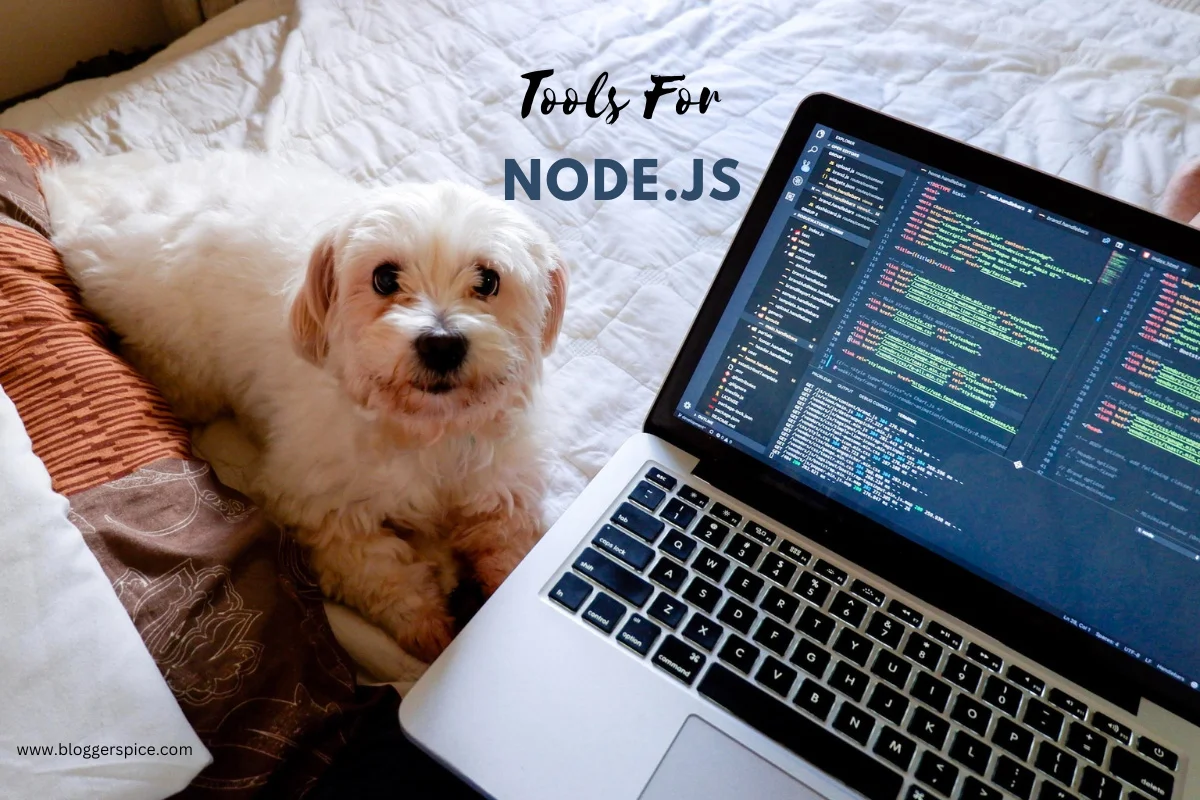Top 10 Powerful Tools For Node.Js Software Development
Node.JS is a valuable runtime platform you can use as a developer. Most developers prefer the framework as the technology uses V8 engines, which are helpful for Google’s Chrome browser.
Significantly, Node.JS has become most preferred for web app development. It offers flexibility to build applications on the server-side and client-side concurrently.
Developing good software can be tricky. With the right tools, you can create apps productively. Moreover, Node.JS comes with a node package manager (NPM), having many open-source modules and tools to aid your development tasks.

If you plan to explore useful Node.JS tools for your project, you can go through this write-up and streamline your development tasks.
Top 10 Powerful Tools For Node.Js Software Development
Here are the top 10 tools for developing Node.Js applications.
1. Socket.io
Socket.io operates faster in real-time activity, providing analytical insights like logs, counters, and charts. Plus, real-time bi-directional communication between devices is one of the best features for creating, streaming, or messaging app.
With the tool, programmers can code instant messaging and chat features. Ideally, real-time analytics modules can push data for important real-time geographical representation.
Socket.io has a startup guide, covering integration, broadcasting, HTML, and web framework. It is an excellent scalable tool that adapts to any platform or device needed for your apps. Trello, Zendesk, and Microsoft are some well-known products that use Socket.io.
2. Babel
Babel is an excellent JavaScript compiler that complies modern code into a more unconventional version of code that earlier versions of browsers can understand. Most developers use Babel in front-end development for its features and JavaScript compiler. Plus, it performs an expansive toolchain, saving developers from writing repetitive blocks of code.
The tool has a powerful syntax transformation and provides a support map for debugging. Above all, it allows transforming ECMAScript 2015 - standard for a scripting language to a backwards compatible JS version.
However, the tool does not include built-in plugins, so you will need to build your own plugin and then use it.
3. Express.JS
Express.JS is the most popular tool with premium features for developing web apps. It is a minimalist framework that helps in achieving good scalability.
Moreover, it offers a wide range of HTTP methods to create APIs. Ideally, its non-synchronous programming allows the developer teams to resolve multiple operations concurrently.
Also, by combining Node.JS and Express.JS, you can scale up the web creation in no time and use it in a full-stack solution. Additionally, it provides a lightweight layer for creating web apps and single-page applications. And provide complete flexibility to add extensions and plugins.
4. Meteor
Meteor is a popular prototyping framework developers use for cross-platform coding, including Android and iOS. It works well with different JavaScript UI widget libraries and integrates with MongoDB. Moreover, you can seamlessly create or deploy apps in JavaScript. As Meteor reduces the coding effort, developers can improve productivity.
Plus, its lightweight structure and reduced footprint make it more responsive than other frameworks of Node.js. The tool is ready to use if you want to access the business logic on the server or database. IKEA and Honeywell are some big business brands that use Meteor.
5. Keystone
Keystone is an open-source tool created on Express and MongoDB. Developers can build web apps, APIs, and websites on Node.JS with this tool.
It is also a content management system tool. Moreover, programmers find it easier to manage templates, routes, and views with it. Also, Keystone comes with an excellent set of features that allows developers to generate user interfaces.
With Keystone, you can create real-world database fields like email and name. Ideally, it is a handy framework for asynchronous coding. Programmers can create authentication and encryption of passwords with Keystone. The best part is it gives backend support to stay focused on UI/UX.
6. Koa.JS
Koa.JS provides a strong foundation for APIs and web applications. The framework is responsive, fast, and can handle different errors. Plus, it does not depend on middleware and facilitates asynchronous programming.
Koa.JS comes with ready-to-use plugins to support routing, compression, caching, and many other tasks. Most developers see it as a next-gen framework because it offers flexible features.
Also, with its built-in plugin remove, you can remove added callbacks. It's an ideal tool for creating mobile applications or internet apps with the scope of customizations.
7. PM2
PM2 is an important development tool that serves as a process manager for different Node.JS apps. New developers can use the tool as it is easier to use.
With an inbuilt load balancer, it is a perfect choice for a production environment. Beyond monitoring and log management, it can check and reload web applications without downtime.
DevOps and developers can efficiently restart applications after crashes using this tool. It also helps eliminate most challenges and issues related to running the Node.JS in docker containers. Additionally, PM2 offers features like cluster mode, hot reload, behaviour configuration, and monitoring of critical parameters.
8. Electrode.JS
Electrode.JS is the best framework for web and native applications. Walmart Lab created this tool with a standardized structure. It blends best app development practices with modern technology for improved productivity.
With the tool, developers can code performant apps and easily deploy them into cloud platforms. Also, you can explore all your platform components and documents and envision the module tree of electrode.io + Webpack project bundles.
Component re-usability is one critical feature of Electrode. JS. Most importantly, it is a universal platform for Node.JS and React applications.
9. Broccoli.JS
Broccoli is a software development tool based on the ES6 module. It offers a reliable and fast asset pipeline for build management. New developers can easily provide integrations with the tool because of its ease of use.
Moreover, Broccoli supports constant builds and rebuilds that help with compact build definitions. The most important feature of the tool is the command line interface.
The output from the tool will be in Brocfile.js, which is in the project root. It is the first choice for all professional Node.JS developers to use different plugins powered by the Broccoli.JS tool.
10. Webpack
Webpack serve assets and bundle, which makes it quicker than other Node.JS tools. Plus, it makes the deployment task easier.
You can use Webpack in conjunction with Node.JS as it marks the deployment process simple and streamlines the app creation. Moreover, it helps to bundle JavaScript pages for implementation in the browser and minimizes page loading time.
With the popularity of software development - deployment and testing need automation. Webpack simplifies the deployment process, which has a significant impact on the overall development cycle. Above all, it enables the implementation of JavaScript pages in web browsers.
Wrapping up,
The Node.JS development tools offer a feasible solution to build great applications and websites. Also, as Node.JS is the most popular JavaScript runtime engine, it offers a pool of features.
With its tools, you can create some best next-gen applications and scale your business. Selecting the right tools can provide scalability and responsive software. Node.js and its tools make it easy to build complex, enterprise-grade software and web apps to make your business apps stand out among the crowd.


Post a Comment